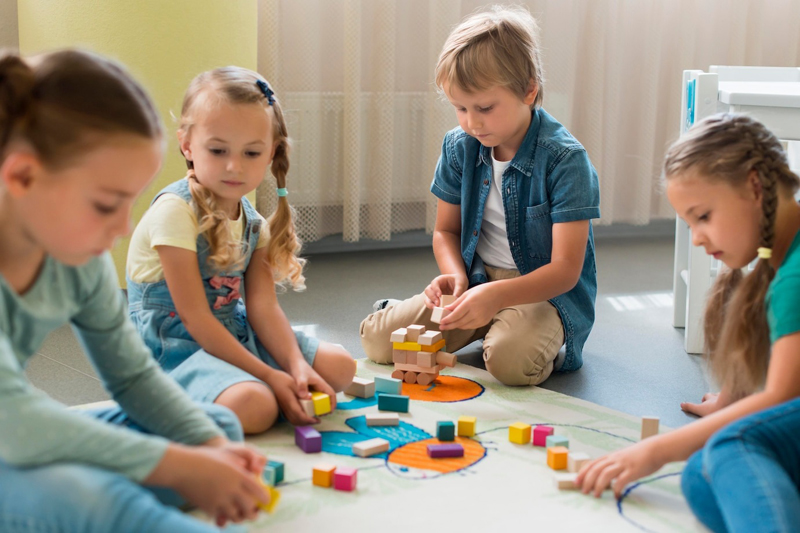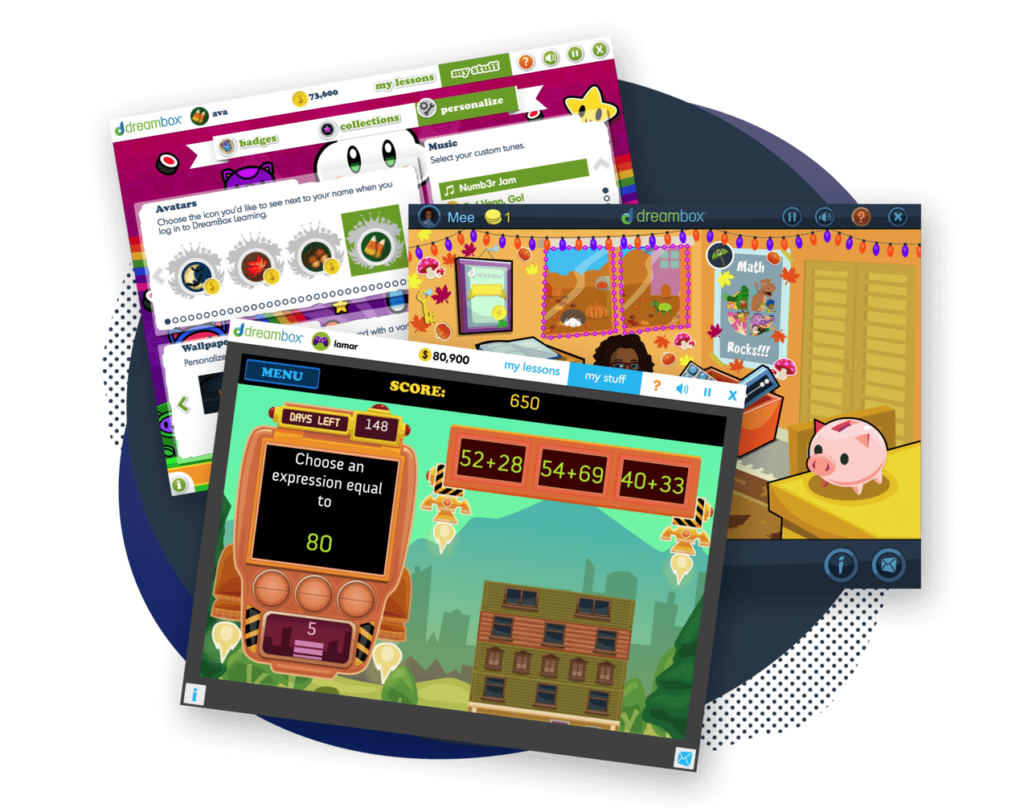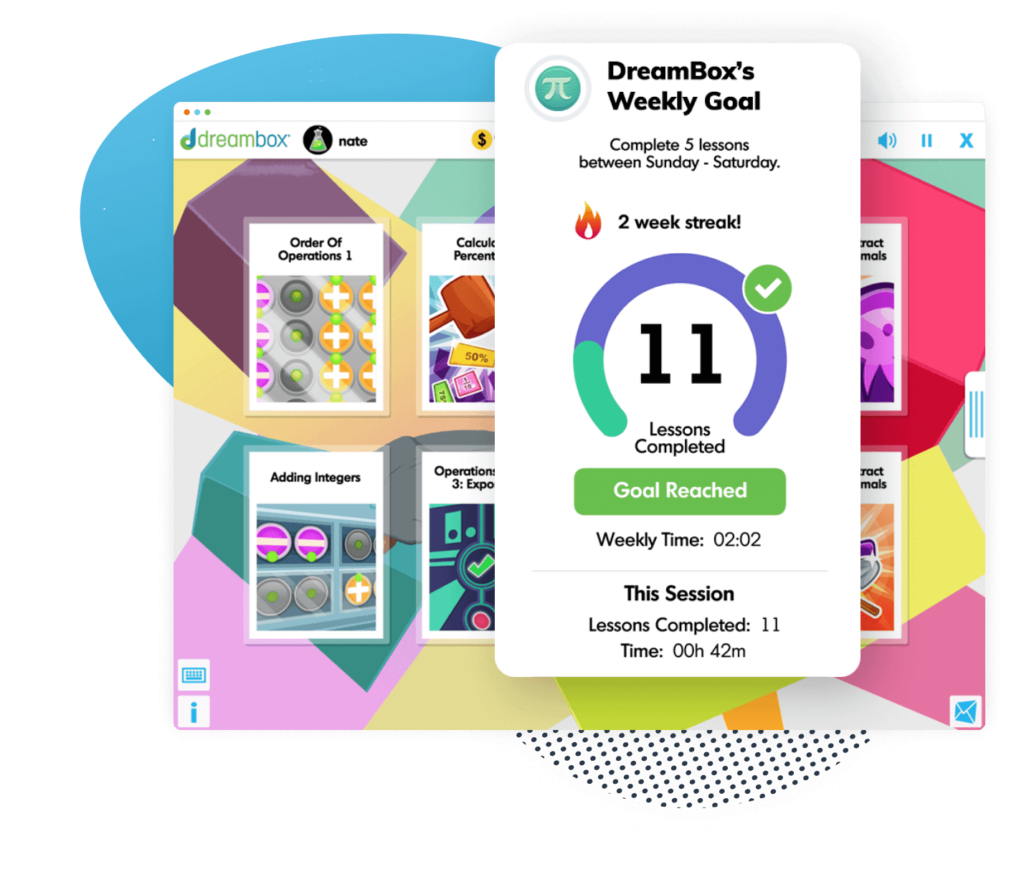What are the Benefits of Game-Based Learning?
Game based learning offers several benefits for students in a traditional classroom or homeschool. Let’s dive into some of the most important.

Author
Katie Wickliff
Published:
September 2024
Key takeaways
- Game-based learning can benefit students in the classroom and the real world.
- The effectiveness of game based learning largely depends on the game design and learning objectives.
- Game based learning increases student engagement and motivates them to continue playing and learning.
Table of contents
Game-based learning is a hot topic in education right now, but teachers have long known that using games in the classroom helps engage students and encourages them to be active participants in their learning.
Educational games can demonstrate to kids that learning is not solely about achieving good grades; it’s also about genuinely understanding a concept and being capable of demonstrating that understanding. In this article, we’ll focus on the advantages of game based learning in for elementary-aged students. Let’s get started!
What is game-based learning?

Game-based learning is an educational approach that uses games to achieve specific learning objectives. These activities can include digital games, board games, puzzles, role-playing scenarios, and more.
Game-based learning is different than gamification, which adds game elements like leaderboards or badges to traditional lessons to make them more engaging. With game-based learning, students gain knowledge from actually playing the game.
Because of the many advantages of game-based learning, the approach is used in every level of education, from preschool through graduate school programs.
Turn math into playtime with DreamBox Math
DREAMBOX MATH
Get started for FREE today!

What are the benefits of game based learning?
Increased motivation and engagement
Games encourage active learning. When students are actively participating in games that include elements like feedback, choice, and collaboration, research shows that they are more motivated to continue playing and learning.
Immediate feedback
Many games are designed to be self-checking–to give players immediate feedback. For example, if a student is putting together a puzzle and they try to connect the wrong pieces, the pieces won’t fit. The student will understand that their answer is incorrect and be able to quickly make another attempt.
Improved recall and retention
Certain types of game-based learning can bring difficult concepts to life, and these real-world examples can help improve recall of declarative knowledge.
Provides opportunity for differentiated Learning
Many games can be designed to accommodate students with varying levels of ability. For example, DreamBox Math is an interactive math program that uses adaptive technology to create personalized learning plans to meet the needs of all students.
Provides opportunity for differentiated Learning
Many games can be designed to accommodate students with varying levels of ability. For example, DreamBox Math is an interactive math program that uses adaptive technology to create personalized learning plans to meet the needs of all students.
Encourages problem-solving skills
When students play games that require them to solve puzzles or overcome challenges, they improve their critical thinking and problem-solving skills. They learn to strategize, make decisions, and adapt to new situations–all valuable skills that help students in the classroom and beyond.
Encourages collaboration
Many games require students to work in teams to solve problems and achieve goals. In order to do this, they need to communicate effectively. Game-based learning is an authentic way to practice this essential skill. Learning how to communicate with different types of people will help students succeed in the classroom and the real world.
Improves creativity
Well-designed games rarely ask students to simply regurgitate facts and figures. Rather, they challenge students to practice flexible thinking and problem-solving. Many games also give players multiple choices or options to achieve goals, allowing them to expand their thinking to consider different viewpoints and make decisions.
Helps simplify concepts and builds skills
Teachers and parents can use games to help simplify complex concepts or skills. Instead of just reading or hearing about something, games allow kids to explore and experiment. This hands-on experience helps build knowledge.
Offers a safe space to practice—and fail
Game-based learning offers students a safe environment in which they can practice, fail, and try again without real-world consequences. Games encourage and often reward experimentation and persistence.
Better academic outcomes
Overall, research shows that game-based learning helps improve academic outcomes for elementary school students by boosting engagement, improving understanding, developing skills, offering instant feedback, supporting differentiated learning, and encouraging teamwork.

The math program that drives results
Get started today!
DreamBox adapts to your child’s level and learning needs, ensuring they are appropriately challenged and get confidence-building wins.
Frequently asked questions
The many benefits of game based learning include: increased motivation and engagement, improved recall and retention, an opportunity for differentiated learning, improved creativity and critical thinking, and more. Game based learning allows students a safe place to practice, fail, and try again.
Game based learning is incredibly effective for math, allowing students to practice complex concepts and skills. Game based learning for math can include online learning platforms, such as Dreambox Math, or non-digital options like board games or puzzles.
The effectiveness of game based learning largely depends on purposeful game design. In order to achieve learning goals through a game, the designers must first ask themselves what those specific goals are. What would they like their students to understand and be able to do?
Take at home math practice to the next level
Empowering parents and educators to make math practice more impactful. Plus, your kids will love it.


